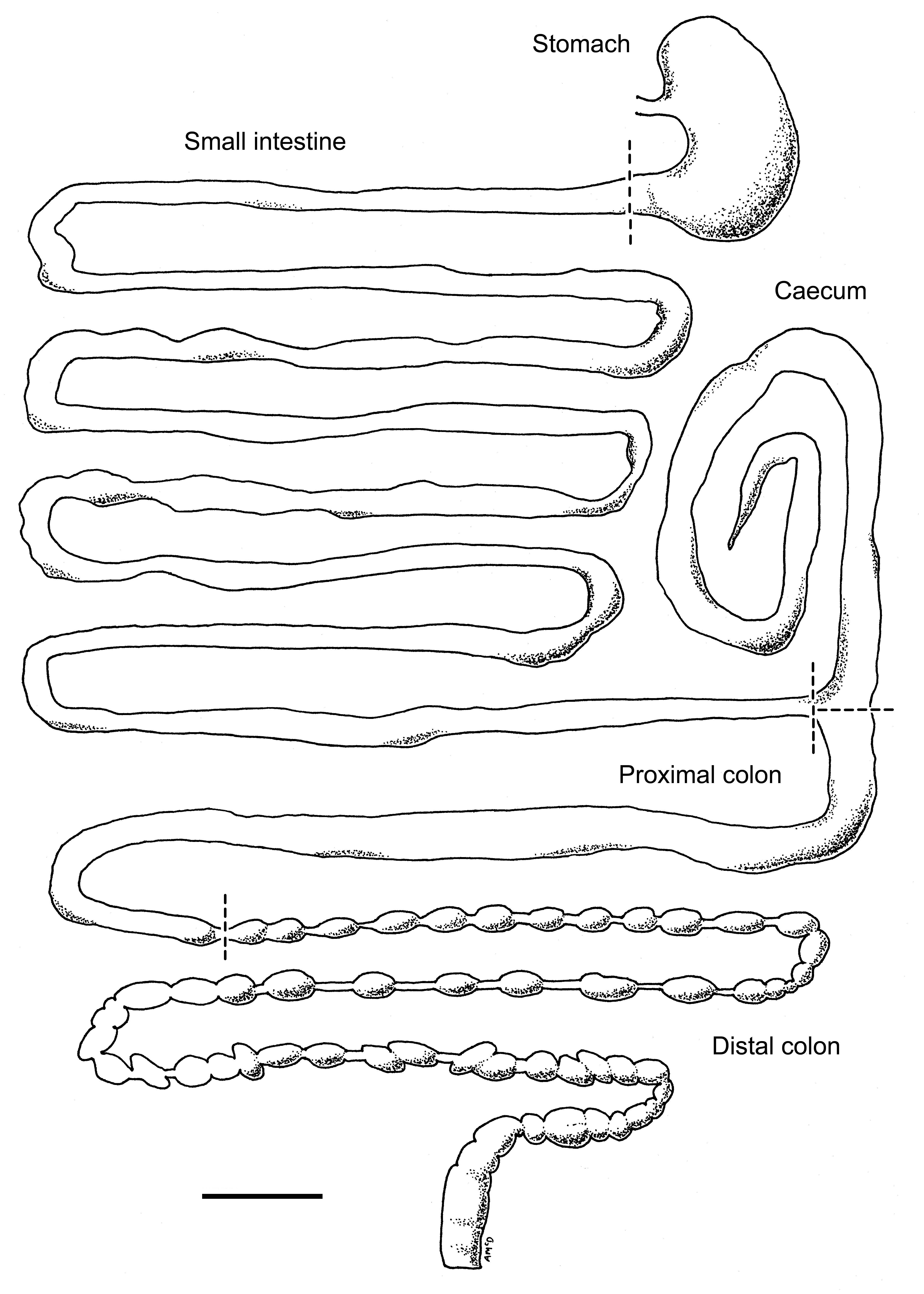GARETH WILLIAMS SHORT CURRICULUM VITAE DOCTORAL CAREER TRINITY COLLEGE
GARETH LEWIS CHILD LICENSING OFFICER EDUCATION WELFARE SERVICE WYVERNGARETH LEWISSTEPH HATTON CHILD LICENSING OFFICERS EDUCATION WELFARE SERVICE
GARETH WILLIAMS SHORT CURRICULUM VITAE DOCTORAL CAREER TRINITY COLLEGE
MARGARETH SANDVIK TOSPRÅKLIGE ELEVERS SKRIVEUTVIKLING MED IKT
PSICOTERAPIA DE NIÑOS DENTRO DE LA TRADICIÓN KLEINIANA MARGARETH
SUMMARY OF RECORDING – GARETH ELWYN JONES GRAMMAR SCHOOL
Gareth Williams: Curriculum Vitae
Gareth Williams: Short Curriculum Vitae
Doctoral Career: Trinity College, Cambridge (1986-90)
Ph.D.
Thesis title: A
Study of Language and Meaning in Ovid’s Exile Poetry
Post-Doctoral
Career:
Assistant Professor of Classics, Columbia University (1992-95)
Untenured Associate Professor of Classics, Columbia University (1995-97)
Tenured Associate Professor of Classics, Columbia University (1997-2002)
Professor of Classics, Columbia University (2002-)
Violin Family Professorship in Classics (2005-)
Services at Columbia:
Undergraduate departmental representative for Classics (1993-95, 1997-8, 2016-17)
Chairman, Department of Classics (2000-6, 2007-8, 2015-
16)
- Director of Graduate Studies (2010-13)
- Arts and Sciences Faculty Academic Review Committee (2004-6)
- Chair of Literature Humanities in the Columbia core curriculum (2005-6, 2007-10,
2012-13)
- Arts and Sciences Policy and Planning Committee (2015-18)
Awards
The Phillip and Ruth Hettleman Award for Junior Faculty (1995)
Theodore Kahan Professorship in the Humanities (2000-5)
Marc van Doren award for distinguished undergraduate teaching (2004)
Violin Family Professorship in Classics (2005-)
Columbia alumni award for outstanding teaching (2006)
Lenfest award for distinguished faculty performance (2005-6)
Goodwin Award of Merit for The Cosmic Viewpoint, 2014
Lionel Trilling Book Award for Pietro Bembo on Etna, 2018
Recent Services to Profession
Associate Editor, American Journal of Philology, 2006-
Classical Editor-in-Chief, Oxford Handbooks Online, 2011-15
Book Review editor, Classical World, 2014-
Publications
Books (single authored):
1. Banished Voices: Readings in Ovid’s Exile Poetry (Cambridge 1994).
2. The Curse of Exile: A Study of Ovid’s Ibis. Proceedings of the Cambridge Philological Society Supplementary Volume 19 (Cambridge 1996).
3. L. Annaeus Seneca: Selected Moral Dialogues. De Otio, De Breuitate Vitae. Cambridge Greek and Latin Classics (Cambridge 2003).
4. The Cosmic Viewpoint: A Study of Seneca’s Natural Questions (Oxford 2012).
5. Pietro Bembo on Etna: The Ascent of a Venetian Humanist (Oxford 2017).
Edited volumes:
1. Seeing Seneca Whole: Perspectives on Philosophy, Poetry and Politics (edited with Katharina Volk, Brill 2006).
2. Roman Reflections: Essays on Latin Philosophy (edited with Katharina Volk, Oxford 2015).
Commissioned Chapters:
1. ‘Nero, Seneca and Stoicism in the Octavia’, in J. Elsner and J. Masters, eds., Reflections of Nero: Culture, History and Representation (London 1994), 178-195.
2. ‘Ovid’s Exilic Poetry: Worlds Apart’, in B. Boyd, ed., Brill’s Companion to Ovid (Leiden 2002), 337-381.
3. ‘Ovid’s Exile Poetry’, in P. R. Hardie, ed., The Cambridge Companion to Ovid (Cambridge 2002), 233-245.
4. ‘New Introduction’ to a reprint (Bristol Phoenix Press, 2008) of R. Ellis, ed., P. Ouidii Nasonis Ibis (Oxford 1881), vii-xxvi.
5. ‘Politics and Narrative in Ovid’s Metamorphoses’, in P. E. Knox, ed., Blackwell Companion to Ovid (Oxford 2009), 154-169.
6. ‘Politics in Ovid’, in W. J. Dominik and J. Garthwaite, eds., Writing Politics in Imperial Rome (Brill 2009), 203-224.
7. ‘A. E. Housman and Ovid’s Ibis’, in D. Butterfield and C. Stray, eds., A. E. Housman the Scholar (London 2009), 95-116.
8. Article on ‘Seneca’, in the Oxford Encyclopedia of Ancient Greece and Rome (2009).
9. ‘Natural Questions’, in G. Damschen and A. Heil, eds., Brill’s Companion to Seneca (Leiden 2014), 181-90.
10. ‘Double Vision and Cross-Reading in Seneca’s Epistulae Morales and Naturales Quaestiones’, in J. Wildberger, ed., Seneca Philosophus (Berlin, 2014), 135-165.
11. ‘Minding the Gap: Seneca, the Self, and the Sublime’, in G. Williams and K. Volk, eds., Roman Reflections: Essays on Latin Philosophy (Oxford, 2015), 172-191.
12. ‘Style and Form in Seneca’s Writings’, in S. Bartsch and A. Schiesaro, eds., The Cambridge Companion to Seneca (Cambridge, 2016), 135-149.
13. ‘Lucan’s Civil War in Nero’s Rome’, in S. Bartsch. K. Freudenberg and C. Littlewood, eds., The Cambridge Companion to the Age of Nero (Cambridge, 2017), 93-106.
Refereed Articles:
1. ‘Conversing after sunset: a Callimachean echo in Ovid’s exile poetry’, Classical Quarterly 41 (1991), 169-177.
2. ‘Vocal variations and narrative complexity in Ovid’s Vestalia: Fasti 6.249-468’, Ramus (1991), 183-204.
3. ‘Representations of the book-roll in Latin poetry: Tr. 1,1,3-14 and related texts’, Mnemosyne 45 (1992), 178-189.
4. ‘Ovid’s Canace: dramatic irony in Heroides 11’, Classical Quarterly 42 (1992), 201-209.
5. ‘On Ovid’s Ibis: a poem in context’, Proceedings of the Cambridge Philological Society n.s. 38 (1992), 171-189.
6. ‘Cleombrotus of Ambracia: interpretations of a suicide from Callimachus to Agathias’, Classical Quarterly 45 (1995), 154-169.
7. ‘Writing in the mother-tongue: Hermione and Helen in Heroides 8 (a Tomitan approach)’, Ramus 26 (1997), 113-137.
8. ‘Testing the legend: Horace, Silius Italicus and the case of Marcus Atilius Regulus’, Antichthon 38 (2004), 70-98.
9. ‘Interactions: physics, morality and narrative in Seneca, Natural Questions 1’, Classical Philology 100 (2005), 142-165.
10. ‘Seneca on winds: the art of anemology in Natural Questions 5’, American Journal of Philology 126 (2005), 417-450.
11. ‘States of exile, states of mind: paradox and reversal in Seneca's Consolatio ad Heluiam Matrem’, in K. Volk and G. Williams, eds., Seeing Seneca Whole: Perspectives on Philosophy, Poetry and Politics (Brill 2006), 147-173.
12. ‘Greco-Roman seismology and Seneca on earthquakes in Natural Questions 6', Journal of Roman Studies 96 (2006), 124-146.
13. ‘Reading the waters: Seneca on the Nile in Natural Questions, Book 4a’, Classical Quarterly 57 (2007), 218-242.
14. ‘Seneca on comets and ancient cometary theory in Natural Questions 7’, Ramus 36 (2007), 97-117.
15. ‘Cold science: Seneca on hail and snow in Natural Questions 4B’. PCPhS 54 (2008), 209-236.
16. ‘Apollo, Aesculapius and the poetics of illness in Ovid’s Metamorphoses’, PLLS 14 (2009), 63-92.
17. ‘Medea in Metamorphoses 7: Magic, Moreness and the maius opus’, Ramus 41 (2012), 49-70.
18. ‘A Passion for Nature: Seneca’s Natural Questions and Hippolytus in his Phaedra’, Maia 69 (2017), 312-325.
19. ‘From Grave to Rave: Reading “Reality” in Propertius 4.7 and 4.8’, in S. Frangoulidis and S. J. Harrison (eds.), Life, Love and Death in Latin Poetry (Berlin, 2018), 51-67.
Reviews:
1. Review of G. Herbert-Brown, ed., Ovid’s Fasti: Historical Readings at its Bimillennium (Oxford 2002), Classical Review 54 (2004), 99-101.
2. Review of A. Schiesaro, The Passions in Play: Thyestes and the Dynamics of Senecan Drama (Cambridge 2003), Hermathena 176 (2004), 104-108.
3. Review of R. Gibson, S. Green and A. Sharrock (eds.), The Art of Love: Bimillennial Essays on Ovid’s Ars Amatoria and Remedia Amoris (Oxford 2006), and R. Ancona and E. Greene (eds.), Gendered Dynamics in Latin Love Poetry (Baltimore, 2005), Journal of Roman Studies 98 (2008), 231-233.
4. Review of P. Hardie and H. Moore, eds., Classical Literary Careers and Their Reception (Oxford, 2010), Classical Review 62 (2011), 169-171.
5. Review of J. Ingleheart, A Commentary on Ovid, Tristia, Book 2 (Oxford, 2010), Gnomon 84 (2013), 693-698.
6. Review of C. Star, The Empire of the Self: Self-Command and Political Speech in Seneca and Petronius (Baltimore 2012), Classical Journal-Online, 2013.02.07
7. Review of M. Beretta, F. Citti and L. Pasetti, eds., Seneca e le scienze naturali (Florence 2012), Isis 104 (2013), 603.
8. Review of P. R. Hardie, Rumour and Renown: Representations of Fama in Western Literature (Cambridge 2012), Journal of Roman Studies 104 (2014), 339-340.
9. Review of B. Del Giovane, Seneca, la diatriba e la ricerca di una morale austera. Caratteristiche, influenze, mediazioni di un rapporto complesso (Firenze, 2015), Prometheus 53 (2017), 301-303.
10. Review of C. V. Trinacty, Senecan Tragedy and the Reception of Augustan Poetry (Oxford University Press, 2014), Journal of Roman Studies 107 (2017), 427-429.
11. Review of C. Formicola, P. Ovidio Nasone: Epistulae ex Ponto, Libro III. Introduzione, testo, traduzione e commento (Pisa, 2017), Bryn Mawr Classical Review 2018.02.46.
Tags: curriculum, williams, gareth, vitae, career, doctoral, trinity, short, college
- PREQUALIFICATION RESULT NOTICE PROJECT NAME EU FINANCIAL AID FOR
- EDITADA POR EL CENTRO DE INFORMACIÓN Y GESTIÓN TECNOLÓGICA
- 20 PLIEGO DE CLÁUSULAS ADMINISTRATIVAS PARTICULARES QUE HA DE
- 7 UNIVERSIDAD DIEGO PORTALES FACULTAD DE CIENCIAS DE LA
- 16 RADIOLOGÍA UNA RADIOGRAFÍA ES UN REGISTRO DE LA
- REPORT TO THE PORTFOLIO COMMITTEE ON COOPERATIVE GOVERNANCE AND
- POWERPLUSWATERMARKOBJECT3 COMPANY NAME HERE [CLICK HERE AND TYPE RETURN
- CURS DINTRODUCCIÓ A LAPRENENTATGE SERVEI FEBRER MARÇ 20132014
- EDITING CHECKLIST FEATURE ARTICLES EXEMPLAR A ACHIEVED [FROM
- ESTIMADO PADRE DE FAMILIAENCARGADO LOS NIÑOS NECESITAN COMIDA NUTRITIVA
- COLEGIO NOCEDAL SONIDOS Y LETRAS LA SÍLABA CUANDO SE
- CAÍDAS NOMBRE DEL JUEGO SIGUE LA PISTA EDAD DE
- 10 BERETTYÓÚJFALU VÁROS ÖNKORMÁNYZATA KÉPVISELŐTESTÜLETÉNEK 162017 (IX 29) ÖNKORMÁNYZATI
- THE EFFECTIVENESS OF DISCRETIONARY INTERVENTION BY THE BANCO DE
- MINISTERSTWO SPORTU I TURYSTYKI DZIAŁANIA NA RZECZ ROZWOJU TURYSTYKI
- “CIUDAD SALUD” SE SUMA A LUCHA CONTRA EL CÁNCER
- SIMON MAGUS 1 SIMON THE SAMARITAN WAS THAT MAGICIAN
- CURRICULUM VITAE SARA RAQUEL MENDES CURA AGOSTO DE 2007
- 4 MATTHEW N KOURY MD MPH MATTHEW N KOURY
- PROTOCOL SCREENING CHECKLIST FOR DETERMINING IF HUMAN SUBJECT RESEARCH
- D&C DJAHF SECTION 097723 FIBER REINFORCED PLASTIC PANELSBOARDS DELETE
- AUSTRALIAN COLLEGE OF VETERINARY SCIENTISTS FELLOWSHIP EXAMINATION JUNEJULY 2009
- TC KIZILTEPE KAYMAKAMLIĞI İLÇE SAĞLIK MÜDÜRLÜĞÜ SAYI 10041965
- EDITORIAL HOW TO IDENTIFY INDIVIDUALS WITH MUTATIONS CAUSATIVE
- CBD CONVENTION ON BIOLOGICAL DIVERSITY DISTR GENERAL UNEPCBDAHTEGIMCAM11ADD1 13
- VINTAGE (AND NEWER) JUMBO (AND LARGER) CARD EFFECTS &
- AHRC922 PÁGINA 9 VERSIÓN EDITADA DE ANTEMANO DISTR GENERAL
- EDITION JUNE 2009 SPECIFICATION PART 1070 ACCESS CONTROL AND
- 20091223 20091211 TISZTELT SZÜLŐK! A VELENCETAVI UTÁNPÓTLÁS ÉS NŐI
- MENÜPONT REHAU – ENERGIAHATÉKONY ÉPÍTÉSI RENDSZEREK A REHAU JÖVŐORIENTÁLT
ST JOHNS FIRE DEPARTMENT BURN PERMIT RULES COVERING BINGHAM
A RESPONSABILIDADE DAS EMPRESAS INTEGRANTES DOS GRUPOS ECONÔMICOS RAFAELA
 AKRON ZOO TRUNK SHOW THURSDAY DECEMBER 7 2017 500
AKRON ZOO TRUNK SHOW THURSDAY DECEMBER 7 2017 500MTSZ MINŐSÍTÉSI SZABÁLYZAT 2005 A MINŐSÍTÉS CÉLJA A RENDSZERES
 LOS PROBLEMAS DE LA FILOSOFIA POR BERTRAND RUSSELL L
LOS PROBLEMAS DE LA FILOSOFIA POR BERTRAND RUSSELL L32005L0031 DIREKTIVA KOMISIJE 200531EZ OD 29 TRAVNJA 2005 O
 DRAFT ABI SUBMISSION TO THE JUSTICE COMMITTEE ON THE
DRAFT ABI SUBMISSION TO THE JUSTICE COMMITTEE ON THEPREPARED 8242010 SOPHIA LANDING HOA ACC REQUEST FORM
ĆWICZENIE ZE ZNAJOMOŚCI OBSŁUGI EDYTORA WORD 2003 MICROSOFT WORD
DEFINITIONS OF INSURANCE TERMS ADDITIONAL INSURED A PERSON
INSPECTORATUL ȘCOLAR JUDEȚEAN TIMIȘ NR CENTRUL JUDEȚEAN DE
 PARLIAMENTARY COMMITTEES PROGRESS ON INVESTIGATIONS TO 31 JANUARY 2004
PARLIAMENTARY COMMITTEES PROGRESS ON INVESTIGATIONS TO 31 JANUARY 2004 ADDR SPECIAL THEME ISSUE “PREDICTION OF DELIVERY AND THERAPEUTIC
ADDR SPECIAL THEME ISSUE “PREDICTION OF DELIVERY AND THERAPEUTIC 20111124 35 (35) SAMTALA – LÄRARMATRIS FÖRNIVÅ STEG
20111124 35 (35) SAMTALA – LÄRARMATRIS FÖRNIVÅ STEGSUPPLEMENTAL APPROPRIATION SCENARIO A SUPPLEMENTAL APPROPRIATION IS AN APPROPRIATION
 ENQUIRY NUMBER FSCASE79070915 FREEDOM OF INFORMATION REQUEST DEAR
ENQUIRY NUMBER FSCASE79070915 FREEDOM OF INFORMATION REQUEST DEARALUMNI PROGRAM STUDI ILMU KOMUNIKASI UMM TAHUN 2003 PERIODE
4 SECTION VIII PLAN GENERAL PROVISIONS
 VOICE MAIL QUICK REFERENCE GUIDE ENDICOTT GLENDALE
VOICE MAIL QUICK REFERENCE GUIDE ENDICOTT GLENDALEMGR JAKUB PIECUCH AKADEMIA ROLNICZA W KRAKOWIE WYKORZYSTANIE FUNDUSZY